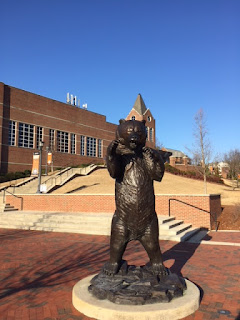Making the Case for a Liberal Arts Education
As a college counselor,
I have the privilege of hearing about the goals and aspirations of young men
and women, and trying my best to launch them to the next level of their
educational journey. I often hear my students say that they must major in
engineering, accounting, or business to land a “good” job after college. While
these majors may be the right choice for some, I want to make the case for a
liberal arts education, and the importance it holds in the job marketplace
today and will continue to for years to come.
As a graduate of a
liberal arts college, Saint Joseph’s University, I would not change anything about the courses I
was able to take or the overall education I received. I have always loved
learning about societies, groups of people, and how everyone interacts with
each other, so I decided to major in Sociology, and it was an incredible
experience. I am a strong believer in taking advantage of our fantastic
American collegiate education, and that all students should pursue an education
in a field or area they are passionate about. Not only is a liberal arts
education crucial to developing well-rounded thinking and experience, it also
prepares students for careers in almost any professional field. Contrary to
popular belief, many employers actually actively seek students with a liberal
arts background, as it signals creative, communicative, and problem-solving
skills, which transcend all types of careers.
One crucial reason a
liberal arts education can often be more helpful than a more specialized degree
is because industries are constantly changing. As Director of Admissions at Seattle
University, Melore Nielson told
me recently, “A liberal arts education provides graduates the creative and
critical thinking skills that will help them adapt to a changing world and
economy, prepares them to communicate with individuals with diverse
perspectives, and lays the foundation for making informed and ethical
decisions.”
The intellectual
curiosity within students with a liberal arts education is key for educational
and professional growth, and their desire to think outside the box and draw
thoughts from diverse schools of thought is what can make these students so
attractive to employers. In a recent discussion with the President of Franklin and
Marshall College, Dr. Daniel
Porterfield, on the value of a liberal arts education, he discussed the
importance of individuals who are willing to go this route in college, and why
our society depends on it. He said, “The great problems and great opportunities
of our era – from climate change to global security and from biomedical
discovery to advances in technology – require well-educated minds who are agile
enough to think imaginatively and respond to change. Liberal arts education promotes
intellectual empowerment and freedom. It’s an American tradition of education
that helps the one and the many.”
When it comes time to
decide which path to take in college, there is no one right direction. That’s
the beauty of American education. And though a STEM or more specialized degree
may be the right fit for certain students, they are not the only option. If you
don’t want to follow a specialized degree path or you’re still unsure which of
your passions you’ll ultimately want to pursue, a liberal arts education can be
a freeing and exhilarating option…and very often, will pay off in the end!
Joseph D. Korfmacher, MA
